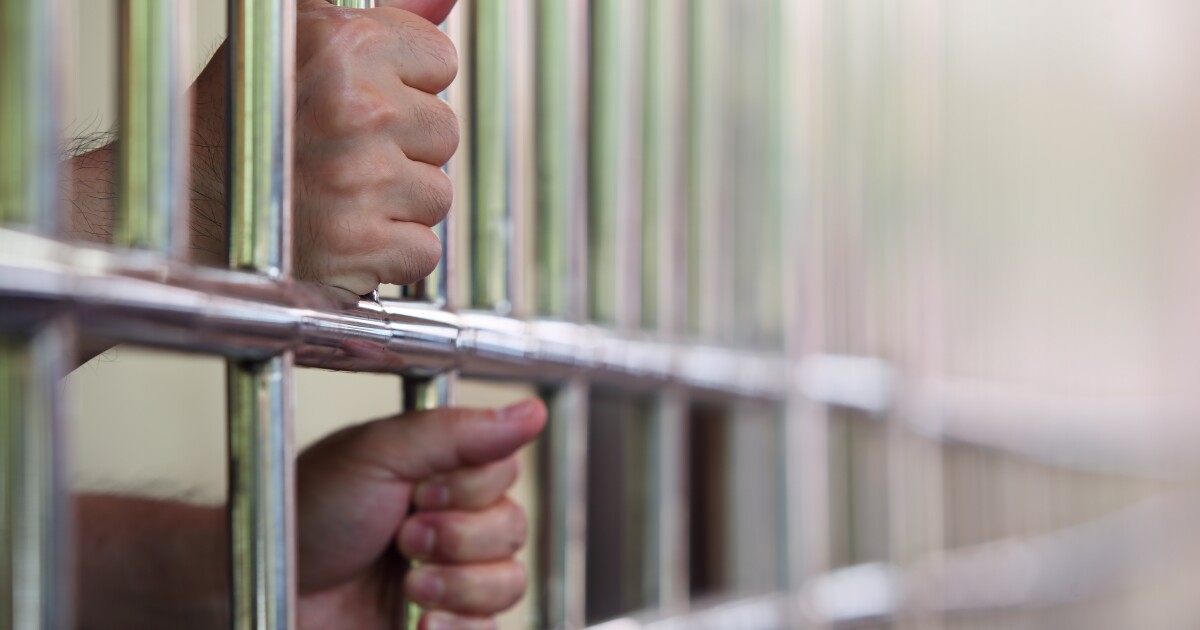All that stands between Taiwan and a near-total internet blackout are 14 undersea cables — a network that would make an easy target in the event of a war with China.
And as tensions with Asia’s biggest economy increase, Taiwan’s government has been trying to bolster the island’s communications, traveling the globe to find a low-orbit satellite system that could back up connections in the event of a failure.
Elon Musk and his Starlink network are one clear solution, but there are a few problems, not least of all Taiwan’s distrust of the billionaire, given his deep business ties with China and pro-Beijing comments.
The Taiwanese and SpaceX began exploratory talks about the satellite supply chain in 2019, but in early 2022, the cordial tenor of those talks changed. Space Exploration Technologies Corp., as SpaceX is formally known, and its representatives in Taiwan began urging government officials to change a law that requires any telecommunications joint venture to have local majority ownership of at least 51%, according to two officials who took part in the meetings. That insistence made Taiwan wary, they said.
SpaceX, which owns and operates Starlink, pushed for 100%, arguing Musk wanted to own the company outright because that’s how he does business around the world, the people said, asking not to be identified because the discussions were private. Indeed in China, Tesla Inc.’s most important market outside of the US, the electric carmaker wholly owns its factory in Shanghai, an anomaly in a country where other foreign automakers must have local partners.
The lobbying also came with an ultimatum: Unless Taiwan agreed to change its ownership rules, the island would get no deal at all.
SpaceX didn’t respond to multiple requests for comment over a period of weeks. Wu Tsung-tsong, minister of the island’s National Science and Technology Council, which leads Taiwan’s science, technology and space development, said Taiwan so far doesn’t “plan to amend the rules,” although he added SpaceX would be welcome if there were a mutual compromise.
While talks have now broken down — SpaceX officials haven’t spoken to Taiwanese government officials since September — Taiwan’s vulnerability, along with Musk’s significant financial stakes in China, are still playing high on many people’s minds.
Read more: How Musk Sparked a Race to Send Satellites into ‘LEO’: QuickTake
Senior US officials reiterated as recently as February that the US believes China wants its military to be capable of invading Taiwan by 2027, although Taiwanese officials have downplayed the risk of invasion and there’s no sign China is gearing up for war.
In February, the territory received a preview of what that might look like, when two subsea internet cables near the Taiwan-controlled Matsu Islands were severed by boats flying Chinese flags. About 14,000 residents spent more than 50 days suffering from painfully slow internet before Taiwan was able to repair the cables.
Taiwan would need to be ready to withstand a much more comprehensive attack on its digital lifelines in the event of a war with China, according to military historian David Silbey, director of teaching and learning at Cornell University’s program in Washington, D.C.
“You cannot fight a conventional war if you cannot communicate with your troops by satellite communications,” he said.
To address that vulnerability, the Taiwan Space Agency (TASA) intends to launch its first self-made low-Earth orbit communication satellite in 2026 and at least one more by 2028, Director General Wu Jong-shinn said. Taiwan also will have rockets capable of carrying payloads weighing over 100 kilograms, he added in an interview.
“Taiwan’s vision is to launch its homegrown rocket with a self-made satellite, with home-made ground equipment and satellite constellation,” he said. “By that, we can safeguard our own country.”
The agency has since 2019 operated six weather satellites in low-Earth orbit through its Formosat-7 program, a partnership with the US National Oceanic and Atmospheric Administration.
Still, even NSTC’s Wu admits that for Taiwan to build a minimum constellation of around 20 to 30 communications satellites, it would need “help from global companies or Taiwan’s private sector.”
That sort of scale is required because while newer low-Earth orbit constellations like the ones deployed by SpaceX, which travel at an altitude of about 340 miles (550 kilometers), can provide faster internet access than satellites in higher orbits, those low-Earth orbit networks need many more satellites to ensure a constant signal as they move across the skies.
The bigger numbers also provide safety, said Mark Matossian, founder of Efficient Frontier Space, a consulting firm in Silicon Valley. Targeting one satellite wouldn’t be enough because “it’s gone in a few minutes and there are more coming,” he said. While China demonstrated its anti-satellite capabilities back in 2007 by using a missile to destroy one of its own satellites, knocking out an entire low-Earth orbit constellation would be more difficult, Matossian said.
That makes SpaceX an obvious partner. The company now has more than 4,300 satellites in orbit and has regulatory approval to launch as many as 12,000.
Starlink’s effectiveness was highlighted last year after Russia invaded Ukraine and sought to take the country offline.
The U.S. and several allies accused Russian state hackers of remotely disabling satellite modems belonging to the telecommunications company Viasat Inc., taking down the internet for thousands of Ukrainians and disabling communications at a critical moment. On Feb. 26, 2022, Ukrainian officials turned to Musk, tweeting at him for help. Within 12 hours he responded, saying Starlink was now active in Ukraine, and more terminals were on the way.
“This was a game changer,” Illya Vityuk, the head of the department of cyber and information security at Ukraine’s security service, said. “Starlink was vital not only for our military, but also for our civilians,” he told the CipherBrief podcast in May.
Starlink’s performance in Ukraine also caught the attention of China’s military analysts.
In April last year, the Beijing Institute of Tracking and Telecommunications published a report acknowledging the satellite system would create “a huge challenge for our current situational awareness and traditional defense capabilities.”
In his comments to the Financial Times published in October, Musk said Beijing had “made clear its disapproval” of the Starlink rollout in Ukraine to help the military circumvent Russia’s severing of internet access. He added Beijing had sought assurances that he wouldn’t sell the service in China.
Those sort of China vagaries worry politicians in Taiwan and beyond.
“If I’m China, I would ask Elon Musk to control all the satellite receivers in Taiwan. If I can control him, in an emergency I can turn it off,” Herming Chiueh, Taiwan’s deputy minister of digital affairs, said. “That’s my perspective, because we know China better than anyone else.”
Lincoln Hines, a China space expert and assistant professor at the US Air War College in Montgomery, Alabama, agrees Taiwan has reason to be concerned.
“Could Taiwan really count on the goodwill of Elon Musk in a crisis? That’s a position not many countries would like to be in,” he said.
Taiwan may also be pursuing military options with the US and other allies. The territory’s Defense Ministry told Bloomberg the military has “multiple backups, with satellite as one of the measures,” but added it doesn’t “comment on details of war preparations.”
With any Starlink deal in limbo, officials are searching for other alternatives, including seeking a workaround to the ownership laws.
In September, the territory’s Ministry of Digital Affairs announced a proof-of-concept program that would allow satellite providers to operate in Taiwan on an emergency basis, without having to set up a new company or be bound by local ownership requirements.
Taiwan’s government opened the program to all the satellite providers, according to Minister of Digital Affairs Audrey Tang. But SpaceX hasn’t expressed interest, said Wu, from the National Science and Technology Council.
Regardless, Tang said her goal remains to set up 700 satellite receivers in and around Taiwan, using a “plurality” of satellite providers to avoid a single point of failure.
To that end, Tang and other officials have traveled to the US and the UK over the past year to meet with vendors.
The ministry is in discussions with Project Kuiper, Amazon.com Inc.’s satellite enterprise, and London-based OneWeb Ltd. has also signaled interest, Tang said. OneWeb plans to offer some coverage for Taiwan by the end of the year.
Meanwhile local electronics giant Foxconn Technology Group, best known as the maker of Apple Inc. iPhones, expects to launch its first low-Earth orbit communication satellite in the fourth quarter, Chairman Young Liu said in May.
And space development is one of President Tsai Ing-wen’s top priorities.
Her government in 2019 pledged to invest NT$25.1 billion ($803 million) in the sector over the next decade. Some 46 Taiwanese companies are already in the supply chain for Starlink and other global operators, and the territory aims to increase the output value of its space industry to NT$1 trillion by 2029, from NT$216 billion last year, according to TASA.
Some companies are focused on going deeper into space. Taipei-based Lung Hwa Electronics, which has a partnership with Hughes Network Systems LLC, won approval in April to offer a satellite service in Taiwan via a geosynchronous satellite, which typically orbits about 37,000 kilometers above the equator.
“Taiwan really needs satellites due to the vulnerability of the undersea cables,” Lung Hwa Electronics CEO Sharon Wang said.
Taiwan faces obstacles to its space-based communications backup plan, though. Approximately 120 satellites in low-Earth orbit will be needed to ensure uninterrupted coverage, TASA Director General Wu said. That’s far more than his agency anticipates launching in the coming years.
Another bottleneck is the shortage of rockets capable of carrying the satellites into space. There are no local options, although startup Taiwan Innovative Space Inc. expects to conduct its third rocket launch attempt in the coming months.
Last November, TASA announced a March launch aboard an Arianespace SA rocket for Triton, Taiwan’s first locally built weather satellite. A failed Arianespace launch in December set back that plan, however, and TASA now hopes it can get Triton into orbit next month.
And even well-funded companies can face setbacks. Virgin Orbit Holdings Inc., backed by billionaire Richard Branson, filed for bankruptcy after suffering a high-profile launch failure in January.
That’s one reason Lung Hwa Electronics’ Wang believes Taiwan needs to hedge its bets instead of committing too deeply to local solutions. Her company has spent six years building its space business, requiring large amounts of technology, capital and talent.
“Homegrown is a goal for every country, but the point is how fast you can achieve it,” she said. “We must use others’ strength to shorten the time needed.”
–With assistance from Loren Grush.
Credit: Source link










